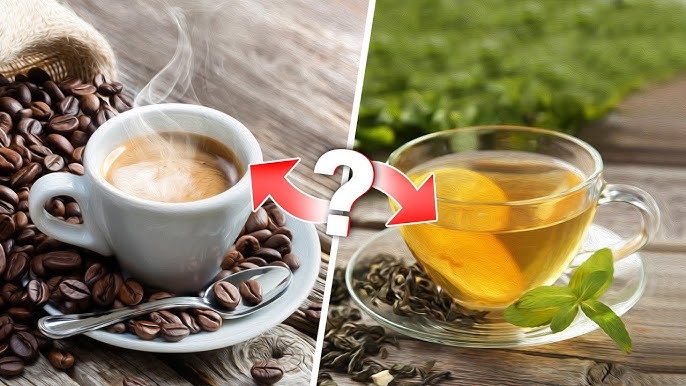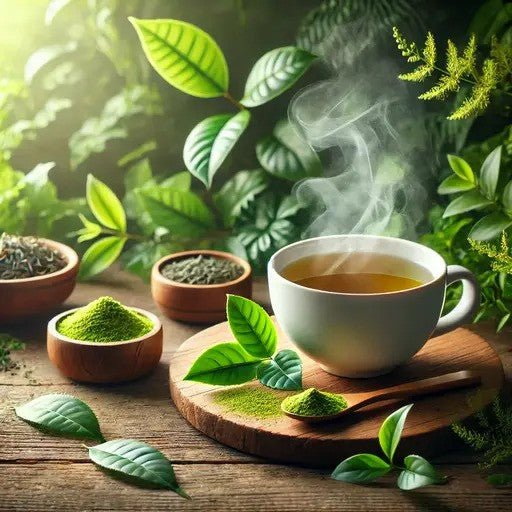Content Menu
● Understanding Green Tea Extract
>> Types of Green Tea Extract
● Caffeine Content in Green Tea Extract
● Comparison with Other Beverages
● Health Benefits of Green Tea Extract
● Potential Side Effects
● Recommended Dosage
● How to Incorporate Green Tea Extract into Your Diet
● Conclusion
● FAQs
>> 1. How much caffeine is in one cup of brewed green tea?
>> 2. Can I take green tea extract if I am sensitive to caffeine?
>> 3. What are the health benefits associated with green tea extract?
>> 4. Is it safe to consume green tea extract daily?
>> 5. How does the caffeine content in green tea compare to coffee?
● Citations:
Green tea extract has gained popularity for its numerous health benefits, including weight loss, improved cognitive function, and antioxidant properties. However, many people are curious about its caffeine content, especially when considering supplements that contain concentrated forms of this extract. This article will delve into the caffeine content in 400 mg of green tea extract, explore its effects, and answer common questions related to this topic.

Understanding Green Tea Extract
Green tea extract is derived from the leaves of the Camellia sinensis plant, which is known for its high concentration of beneficial compounds such as catechins, particularly epigallocatechin gallate (EGCG), and caffeine. The extraction process typically involves steeping the leaves in water to concentrate these active ingredients.
Types of Green Tea Extract
There are various forms of green tea extract available on the market:
- Powdered Extract: This form is often used in smoothies or as a dietary supplement. It can be mixed with water or other beverages.
- Capsules and Tablets: These are convenient forms for those who prefer not to taste the extract. They provide a precise dosage and are easy to consume.
- Liquid Extracts: These can be added to drinks or taken directly. They often have a more potent flavor compared to powdered forms.
Each type may have different concentrations of caffeine and other active ingredients, so it's essential to read labels carefully.
Caffeine Content in Green Tea Extract
The caffeine content in green tea extract can vary significantly depending on the brand and formulation. Here are some examples:
- NOW Foods: 400 mg of green tea extract contains up to 32 mg of caffeine.
- Jarrow Formulas: 500 mg of green tea extract contains approximately 40 mg of caffeine.
- Nature's Truth: A product with 200 mg of green tea extract may contain up to 200 mg of caffeine.
From these examples, we can see that while some products may have a lower caffeine content, others can be quite high. Generally, a 400 mg serving of green tea extract is likely to contain between 15 and 32 mg of caffeine depending on the specific product formulation.
Comparison with Other Beverages
To put this into perspective, an 8-ounce cup of brewed green tea typically contains about 30 to 50 mg of caffeine. In contrast, brewed coffee usually contains around 95 to 165 mg per cup. Thus, while green tea and its extracts do contain caffeine, they are generally lower than coffee and some other caffeinated beverages.
| Beverage | Caffeine Content (per serving) |
| Brewed Green Tea (8 oz) | 30 - 50 mg |
| Brewed Coffee (8 oz) | 95 - 165 mg |
| Green Tea Extract (400 mg) | 15 - 32 mg |
Health Benefits of Green Tea Extract
Green tea extract is rich in antioxidants and has been linked to various health benefits:
- Weight Loss: Studies suggest that the combination of EGCG and caffeine can enhance fat oxidation and improve metabolic rates. A study published in the American Journal of Clinical Nutrition indicated that green tea extract could help increase calorie burning by about 3-4% over a 24-hour period.
- Cognitive Function: Caffeine is known to improve alertness and cognitive performance. The presence of L-theanine in green tea can also promote relaxation without drowsiness. Research has shown that this combination can enhance attention and memory.
- Heart Health: Regular consumption may help reduce cholesterol levels and improve overall cardiovascular health. A meta-analysis published in The American Journal of Clinical Nutrition found that individuals who consumed green tea regularly had a lower risk of heart disease.
- Antioxidant Properties: The high levels of catechins in green tea extract provide strong antioxidant effects that help combat oxidative stress and inflammation in the body.

Potential Side Effects
While moderate consumption of green tea extract is generally safe for most people, excessive intake can lead to side effects primarily due to its caffeine content. Possible side effects include:
- Jitters or Anxiety: High doses of caffeine can lead to increased heart rate and feelings of anxiety. Individuals sensitive to stimulants may experience these effects even at lower doses.
- Insomnia: Consuming caffeine late in the day can interfere with sleep patterns. It's advisable for those sensitive to caffeine to limit their intake after midday.
- Gastrointestinal Issues: Some users report stomach upset or nausea when taking concentrated forms of green tea extract, especially on an empty stomach.
- Liver Issues: Some studies have linked high doses of green tea extract with liver damage. However, this is primarily associated with excessive supplementation rather than moderate consumption through beverages.
Recommended Dosage
The recommended dosage for green tea extract varies based on individual health goals and product formulation. Generally, a daily intake ranging from 250 mg to 500 mg is considered safe for most adults. It's essential to consult with a healthcare provider before starting any new supplement regimen, especially if you have underlying health conditions or are taking medications.
How to Incorporate Green Tea Extract into Your Diet
Incorporating green tea extract into your daily routine can be simple:
- Smoothies: Add powdered green tea extract to your morning smoothie for an antioxidant boost.
- Baking: Use it as an ingredient in baked goods like muffins or energy bars for added health benefits.
- Tea Blends: Combine it with other herbal teas for a refreshing beverage.
- Supplementation: If opting for capsules or tablets, follow the recommended dosage on the label for best results.
Conclusion
The amount of caffeine in a typical dose of 400 mg of green tea extract ranges from approximately 15 to 32 mg. This makes it a suitable option for those looking for a mild stimulant compared to coffee or other caffeinated drinks. However, individuals sensitive to caffeine should monitor their intake from all sources.
Green tea extract not only provides a moderate amount of caffeine but also offers numerous health benefits due to its rich composition of antioxidants and other beneficial compounds. As with any supplement, moderation is key, and it's important to consult healthcare professionals when integrating new products into your diet.

FAQs
1. How much caffeine is in one cup of brewed green tea?
One cup (8 oz) of brewed green tea typically contains between 30 and 50 mg of caffeine.
2. Can I take green tea extract if I am sensitive to caffeine?
If you are sensitive to caffeine, it's advisable to start with a lower dose or consider decaffeinated options.
3. What are the health benefits associated with green tea extract?
Green tea extract is known for its antioxidant properties, potential weight loss benefits, improved cognitive function, and heart health support.
4. Is it safe to consume green tea extract daily?
Moderate consumption (300-800 mg/day) is generally considered safe for most healthy adults; however, excessive intake should be avoided due to potential side effects.
5. How does the caffeine content in green tea compare to coffee?
Green tea generally has less caffeine than coffee; an average cup of coffee contains about 95-165 mg per serving compared to about 30-50 mg in a cup of green tea.
Citations:
[1] https://www.livestrong.com/article/186702-how-much-caffeine-is-in-green-tea-extract/
[2] https://health.clevelandclinic.org/green-tea-extract-a-better-way-to-boost-energy-or-not
[3] https://www.youtube.com/watch?v=5OlyxaRgabw
[4] https://www.healthline.com/nutrition/10-benefits-of-green-tea-extract
[5] https://www.zhounutrition.com/blogs/the-greatness-files/green-tea-extract-q-a
[6] https://www.elo.health/articles/green-tea-extract-supplements/
[7] https://www.caffeineinformer.com/caffeine-content/green-tea-extract
[8] https://www.medicalnewstoday.com/articles/269538
[9] https://www.webmd.com/drugs/2/drug-76714/green-tea-leaf-extract-oral/details
[10] https://www.webmd.com/vitamins/ai/ingredientmono-960/green-tea
[11] https://www.reddit.com/r/chemistry/comments/3gt1zo/how_much_caffeine_in_green_tea_extract/
[12] https://sg.iherb.com/pr/now-foods-green-tea-extract-400-mg-250-veg-capsules/7267
[13] https://pubmed.ncbi.nlm.nih.gov/16506807/
[14] https://www.healthline.com/nutrition/caffeine-in-green-tea
[15] https://hammernutrition.com/blogs/endurance-news-weekly/green-tea-extract-in-fully-charged
[16] https://www.elo.health/articles/green-tea-extract-supplements/
[17] https://examine.com/supplements/green-tea-extract/
[18] https://www.livestrong.com/article/186702-how-much-caffeine-is-in-green-tea-extract/
[19] https://www.sugimotousa.com/blog/green-tea-vs-coffee-everything-you-need-to-know
[20] https://pmc.ncbi.nlm.nih.gov/articles/PMC7098939/
[21] https://www.youtube.com/watch?v=CkdqsIhHEhM
[22] https://cytomatrix.ca/products/green-tea-extract-90-v-caps/
[23] https://pmc.ncbi.nlm.nih.gov/articles/PMC4307170/
[24] https://www.youtube.com/watch?v=Q8gBjZ5e3Bs
[25] https://www.medicalnewstoday.com/articles/269538
[26] https://www.youtube.com/watch?v=RIbff5iD0GQ
[27] https://www.healthline.com/nutrition/10-benefits-of-green-tea-extract
[28] https://www.healthline.com/nutrition/top-10-evidence-based-health-benefits-of-green-tea
[29] https://pmc.ncbi.nlm.nih.gov/articles/PMC2789276/
[30] https://pmc.ncbi.nlm.nih.gov/articles/PMC10930107/






























